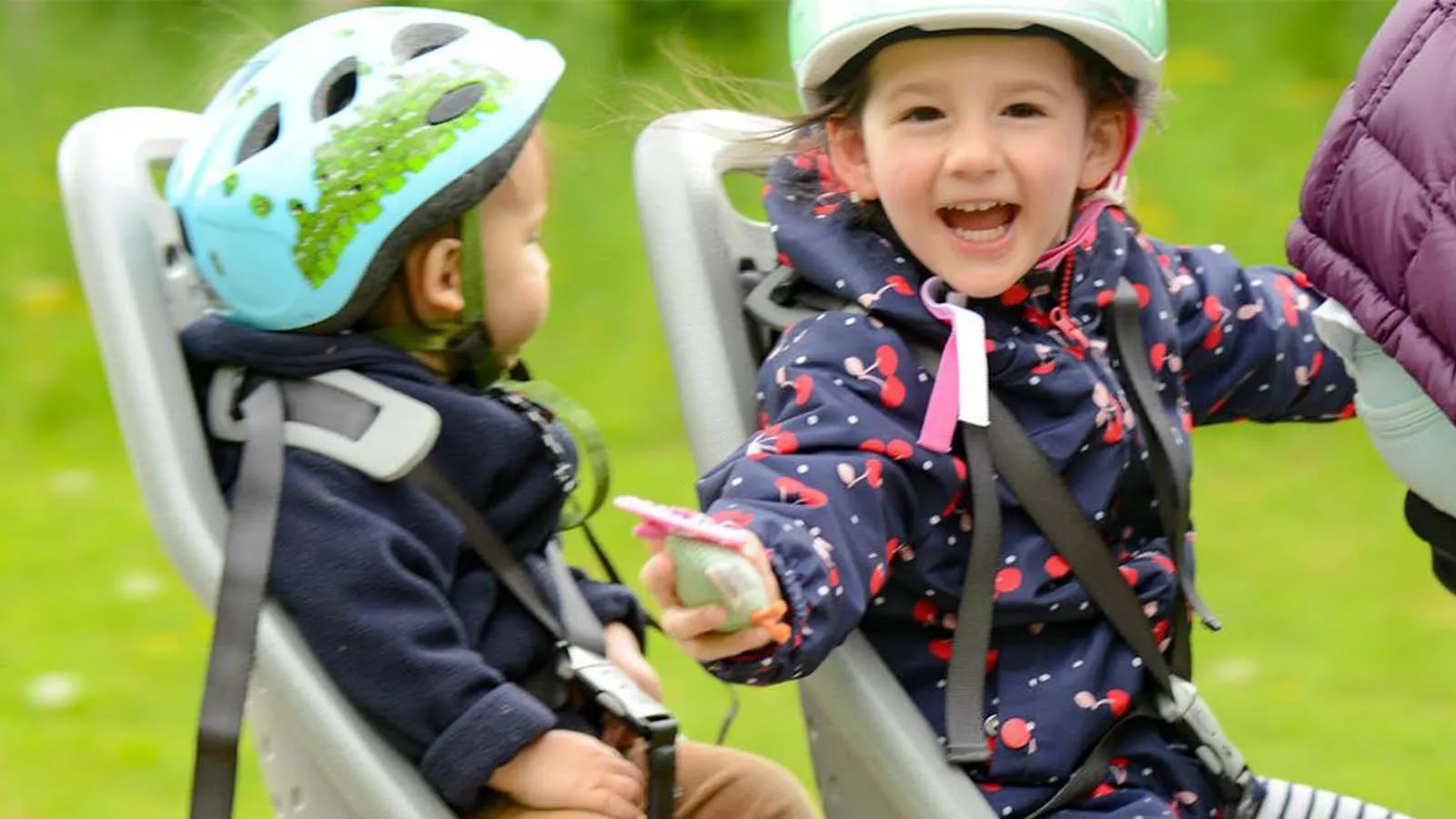
(Photo credits: @gideonheedephotography | Facebook; @gideonheede | Instagram)
Tern cargo bikes make it possible for families to bike more and drive less. But it's important to always put safety first when deciding how you'll carry passengers on your bike. This article will list four methods that you should avoid.
Contents
- Only Use Tested Passenger-Carrying Setups
- What are Some Recommended Passenger-Carrying Solutions?
- Four Passenger-Carrying Methods to Avoid
- What If I Need to Carry More Kids?
Only Use Tested Passenger-Carrying Setups
We at Tern will only recommend accessories and ways of using our bikes after thorough testing. It’s not enough to check that a certain accessory fits. We also need to make sure that none of the bike parts or components are put under stress that they weren’t designed for.
For example, before recommending different ways to tow a trailer with the GSD, we partnered with EFBE Prüftechnik GmbH, one of Europe's leading bicycle test laboratories, to test these methods and make sure they were safe and reliable.
For your safety, it’s important that you avoid untested passenger-carrying setups—and that includes all setups involving more than two passengers.
What are Some Recommended Passenger-Carrying solutions?
There are several possible passenger-carrying solutions. Check out the Tern Passenger Guide to learn more about our recommended setups for your bike.
Four Passenger-Carrying Methods to Avoid
When it comes to transporting the people you love the most, we want you to err on the side of caution—and that's why we do not recommend the following methods.
1. Handlepost-Mounted Seats
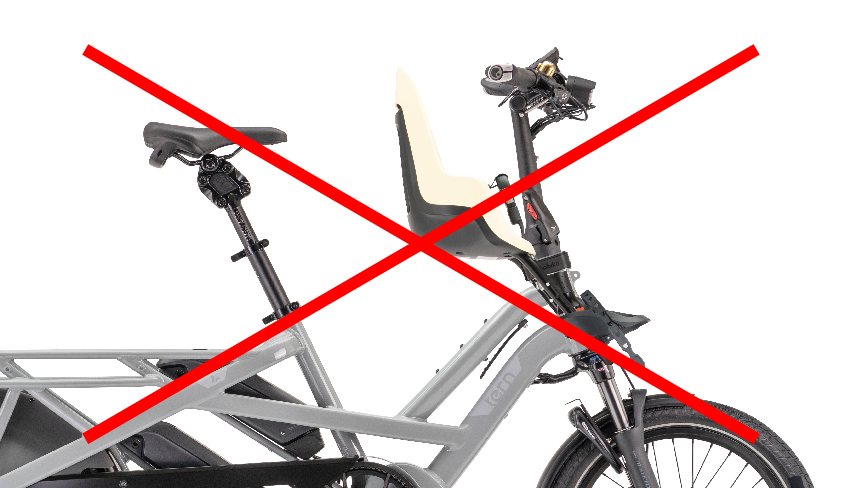
The Physis is a folding handlepost that makes bikes like the GSD and the HSD compact enough to fit inside a car or stored in small spaces. A handlepost-mounted seat substantially changes the amount and direction of the force on the handlepost. It also negatively impacts steering dynamics. This method has never been tested and should be avoided.
One exception: If you have a Short Haul, it's possible to use a front-mounted child seat. For more information, check out this article.
2. Seatpost-Mounted Seats
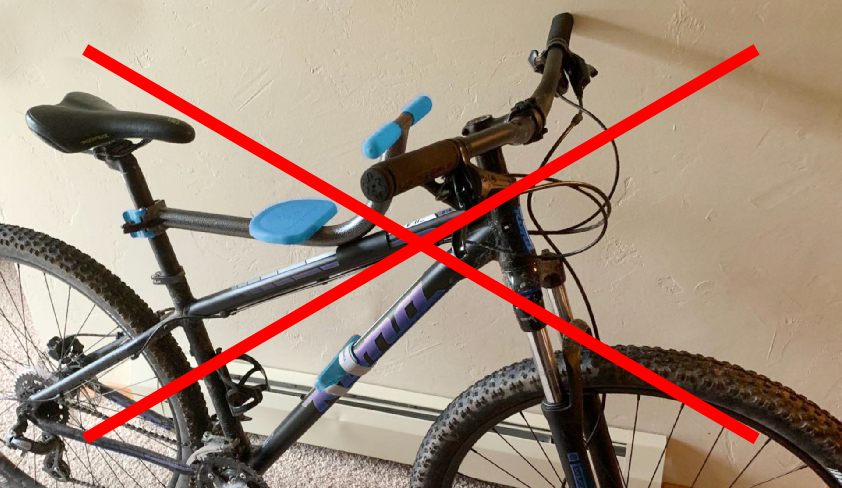
The adjustable seatpost on Tern cargo bikes fit riders of different heights, and also contributes to their compact size for storage. A seatpost-mounted seat changes the amount and direction of the force on the seatpost. This method has never been tested and should be avoided.
For the same reason, we do not recommend attaching a seat tube-mounted child seat to your bike's seatpost:
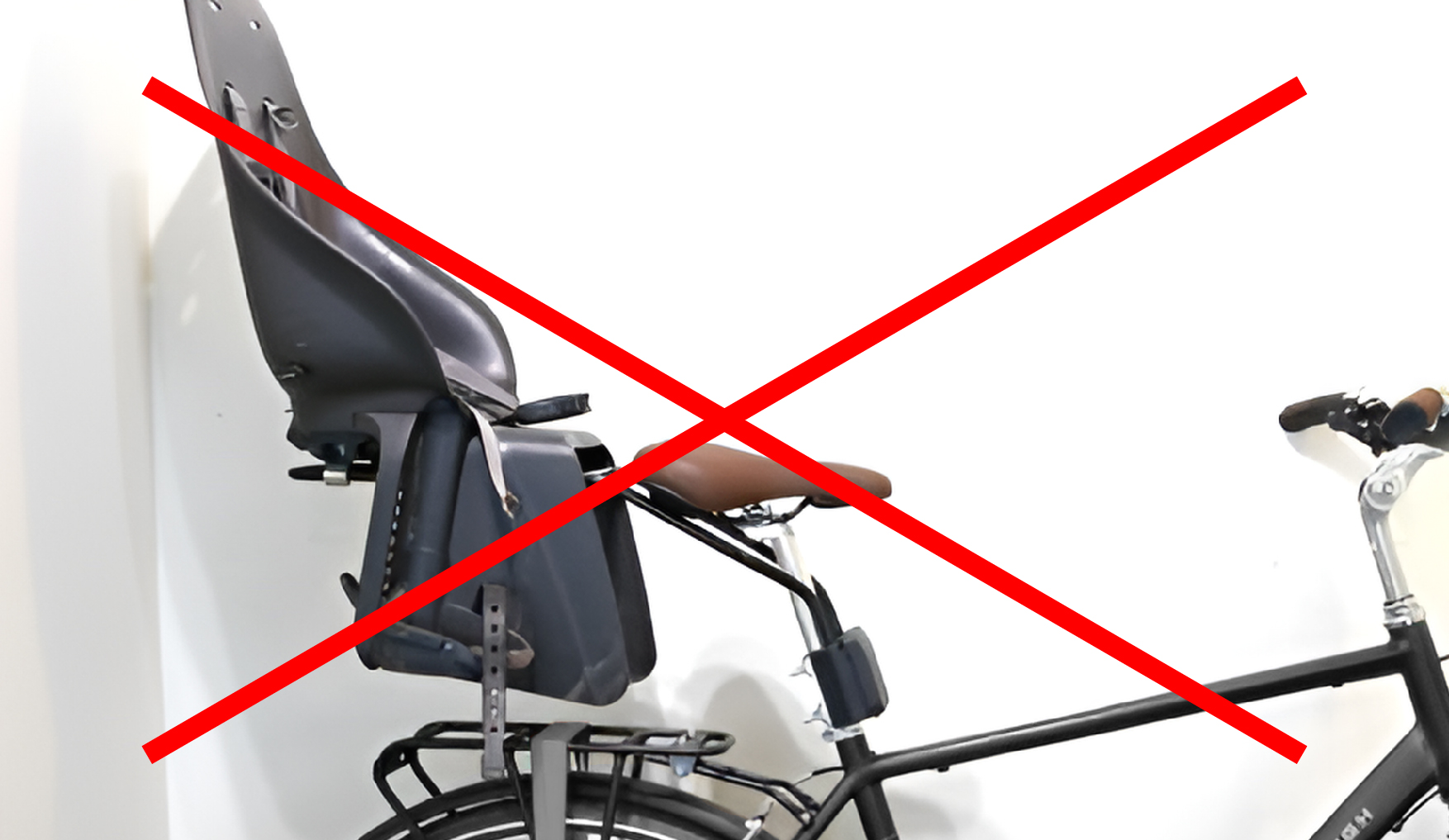
These types of child seats are designed for the seat tube (the part of the bike frame that stows the seatpost), and are not to be used on seatposts—even on non-Tern bikes.
3. Frame-Mounted Seats
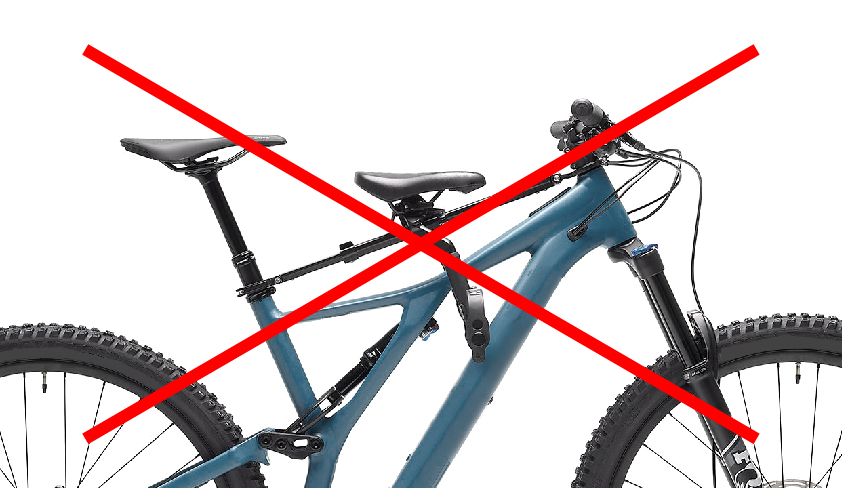
Tern cargo bike frames are designed to handle big loads, but each bike has a maximum gross vehicle weight—and you can check out the Tern Cargo Guide to learn more about your bike's MGVW. As burly as it is, the frame is not indestructible—and we do not recommend that riders push the frame beyond design and manufacturing limits.
The metal clamps for this frame-mounted seat stress the frame in ways it was not designed to be stressed and can result in permanent damage. Such mounting systems have never been tested. In addition, this bike accessory itself may not have passed relevant safety tests.
4. Front Rack-Mounted Seats
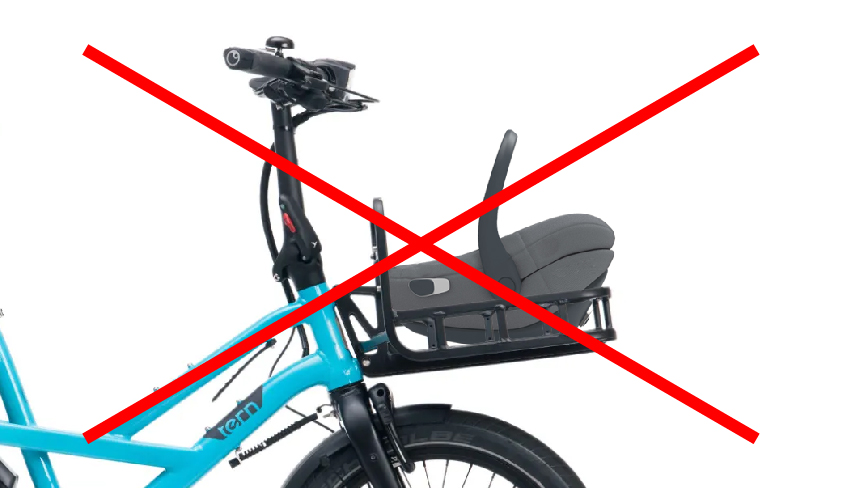
Our front racks, like the Transporteur Rack and the Hauler Rack, allow Tern riders to safely haul lots of cargo on the front of the bike. However, they were not designed to carry a child and don't even have the necessary mounting points to safely attach a child seat. Any modifications to the rack, such as drilling holes, would weaken it. This passenger-carrying setup has never been tested and should be avoided.
What If I Need to Carry More Kids?
Our cargo bikes were designed to be useful, but we purposely limited their length so they could be compact and versatile. If you need to carry more kids than recommended in the Tern Passenger Guide, we recommend getting a second kid-hauling bike, or a trailer:
Related Articles
More info is coming